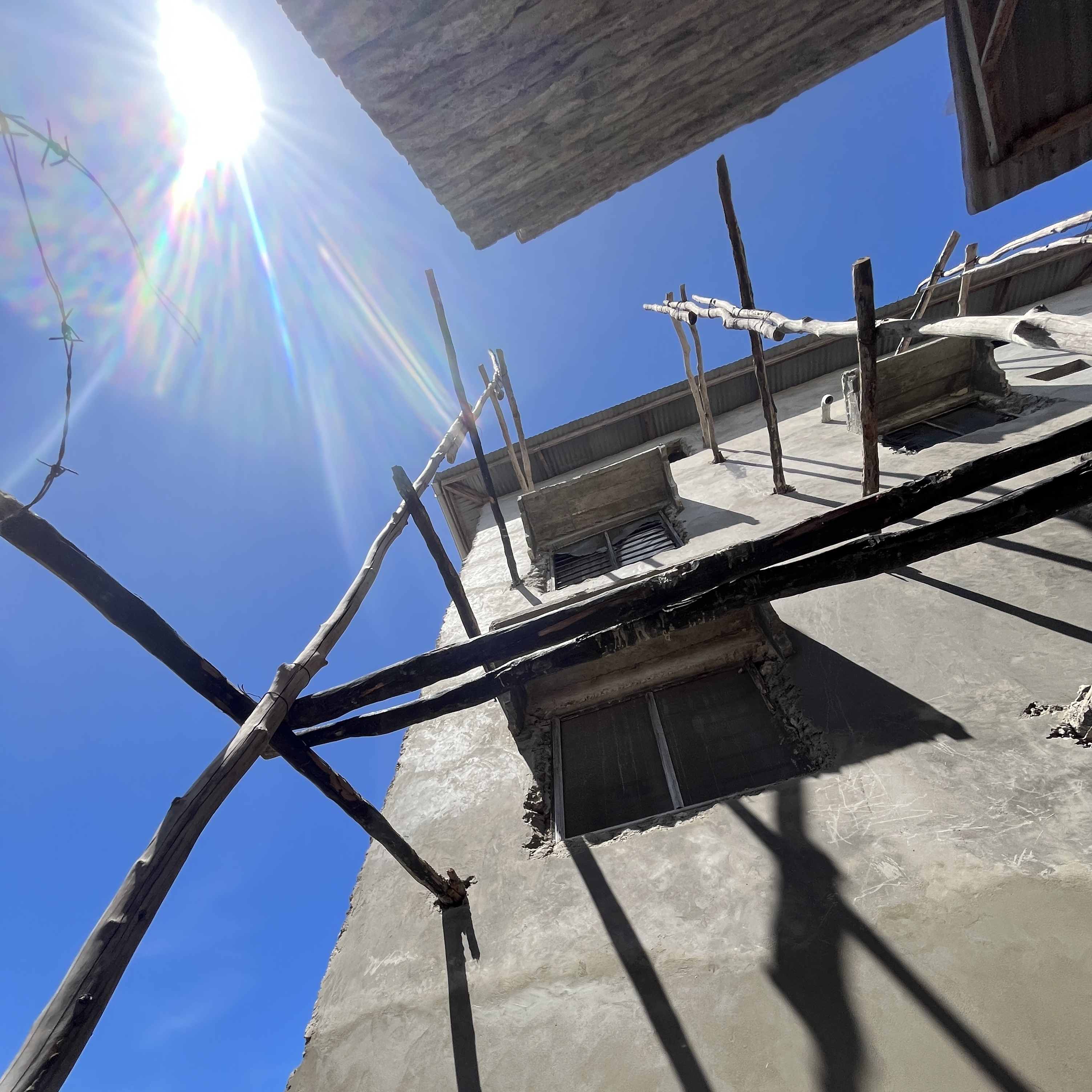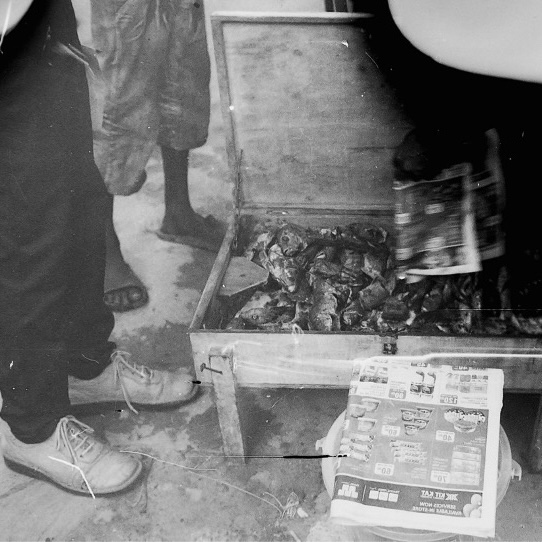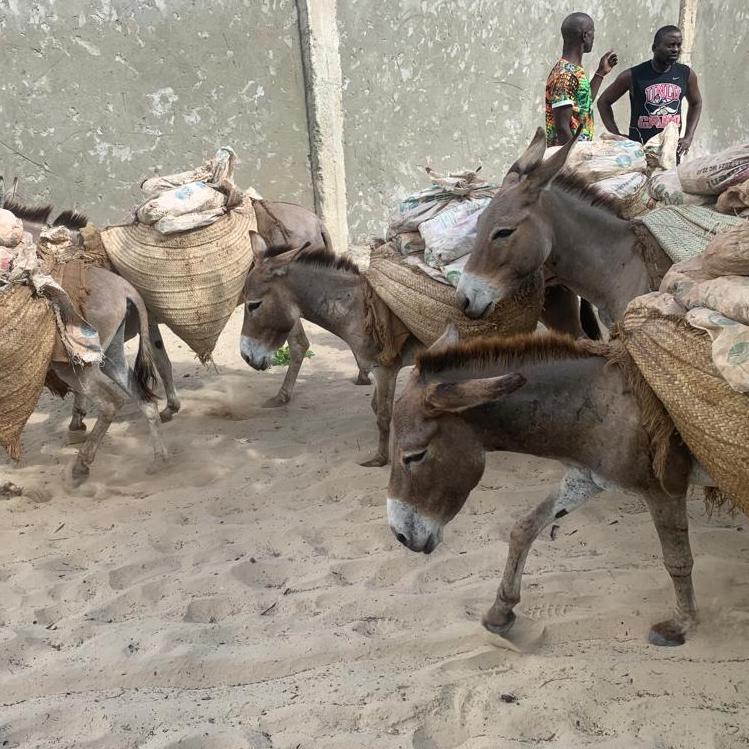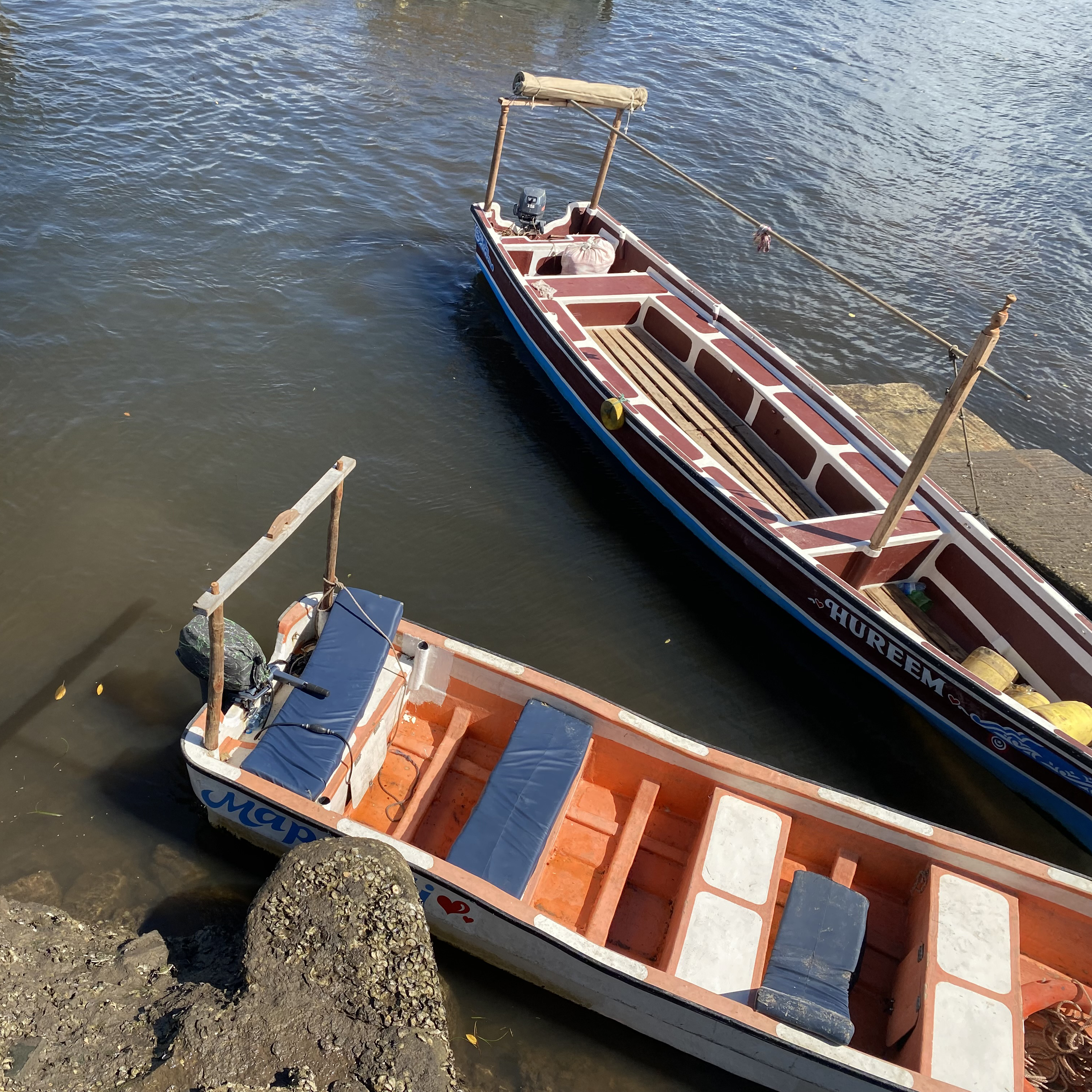Security Urbanism
What impact does securitisation have on the lived experiences of community members and on the region's future development?

Given constant vigilance by government security agents in the wake of terrorist attacks, many people in Lamu County may feel more secure. Yet discrepancies in who is afforded safety should be addressed to assure inclusive development.
By engaging with the residents of Lamu, Shela, Manda, Mokowe, and Hindi, this theme aims to explore everyday perceptions of security and how it impacts property relations, social inequality, and urban development in the context of state-sanctioned securitisation.
By engaging with the residents of Lamu, Shela, Manda, Mokowe, and Hindi, this theme aims to explore everyday perceptions of security and how it impacts property relations, social inequality, and urban development in the context of state-sanctioned securitisation.
We emphasise the difference between security and securitisation, and the experiences of residents of the five above-mentioned areas regarding security, both personal and state-sanctioned, differently based on ethnicity, gender and other socio-economic factors.
Projects
Security Urbanism #2303
Security, and Urban
Al-Shabaab,
Security, and Urban
Development
The LAPSSET project has triggered significant development in Lamu County. Stretching across northern Kenyan counties and connecting six Western African nations, it promises to integrate remote communities into the global economy and drive regional economic growth. The project encompasses a new highway, railway system, crude oil pipeline, fibre-optic cable, and a partially operational 32-berth port in Lamu.
With this concentrated development in the region, the government has heightened its focus on security. Located on Kenya's coast, the region shares a porous border with Somalia, where the terrorist organisation al-Shabaab remains active.
With this concentrated development in the region, the government has heightened its focus on security. Located on Kenya's coast, the region shares a porous border with Somalia, where the terrorist organisation al-Shabaab remains active.
Terrorism remains contentious, leading to substantial government and research investments to prevent attacks. However, recruitment, manipulation, and weaponisation of Kenyan youth against their communities continue.
This research paper explores security concerns in Lamu County and residents' perceptions, especially in towns like Lamu, Shela, Manda, Mokowe, and Hindi, where LAPSSET development is significant. Our guiding question explores how securitisation influences daily life, property relations, and social inequality in a state-sanctioned securitisation context.
This research paper explores security concerns in Lamu County and residents' perceptions, especially in towns like Lamu, Shela, Manda, Mokowe, and Hindi, where LAPSSET development is significant. Our guiding question explores how securitisation influences daily life, property relations, and social inequality in a state-sanctioned securitisation context.
Securitisation and Community Concerns
To comprehend security issues in Lamu and LAPSSET's impact, we began by examining government priorities with Philip Oloo, Assistant County Commissioner of Lamu. His office coordinates security, conflict resolution, local security structures, and county-level national government functions. Philip highlighted tensions arising from religious and ethnic differences, competition for finite resources among farmers, herders, and pastoralists, and challenges tied to youth unemployment and lack of formal education, leading to social issues like substance abuse and petty crimes.
Philip mentioned a poignant example: "Pastoralists believe that anything green is for the animals to feed on." This simple statement encapsulates the conflicts that can arise from resource scarcity in the region.
Despite increased security measures, Philip pointed out existing vulnerabilities for illicit drug trafficking into Lamu: "We have closed but not managed land borders, open sea borders, and Bajuni communities straddling the Kenya-Somalia border, connected through marriage or involved in illegal drug trade."
While LAPSSET promises massive development, concerns linger due to the potential influx of people from diverse backgrounds, posing security challenges. Land issues within the context of the mega-project also raise apprehensions among locals.
Fate of the shephard
Dagane Diriyi, chairman of the pastoralist association in Hindi, echoes these concerns. New infrastructure construction constrains grazing areas for animals, and despite appeals, the county government has not allocated land to pastoralists. They face harassment near the port when using private grasslands.
However, Dagane is optimistic about the pastoralists' future and believes the port will bring positive change and economic opportunities to Lamu County. Yet many residents fear that job creation and investment earnings benefits may favour "up-country" Christian people in Nairobi over Lamu's indigenous Muslim communities.
Feeling secure
Many in Lamu, Shela, Manda, Hindi, and Mokowe feel safer due to the government's response to al-Shabaab and LAPSSET's presence. Increased security measures and development improvements are evident and generally welcomed.
Khalifah S. Alwi, Chief of Mokowe, expresses optimism about Mokowe's transformation into a bureaucratic hub.
Khalifah S. Alwi, Chief of Mokowe, expresses optimism about Mokowe's transformation into a bureaucratic hub.
When he first arrived in Mokowe as assistant chief in 2007, the town had "no power, no electricity and no tarmac road," but is now the centre of power in Lamu County. "A lot of good changes are happening… Mokowe will become a second Dubai".
His office in the centre of town is flanked on all sides by the offices of the Kenyan Navy, Coast Guard and the General Service Unit (GSU), the state paramilitary force. Nearby, the Kenya Border Patrol Unit (BPU) and the Rapid Deployment Unit (RDU) are present, and in recent years, security forces and government ministries have established offices in the town owing to its proximity to the port.
Hopes of a working mother
Salma Begum, a quarry worker and long-time resident of Manda Maweni, lives with her six children. Recalling her twenty years in the town, Salma notes that security improvements have occurred. In the past, al-Shabaab attacks in nearby regions forced her to flee into the bushes with her family for days on end. Salma tells us those threats are few and far between now. Still, the presence and availability of drugs and excessive alcohol consumption leave the youth in Manda vulnerable to delinquency and school dropouts, making them ideal targets for inducements and potential radicalisation.
With regard to the development of Manda, Salma, like many others, sees the potential benefit of LAPSSET for the community. Salma believes the increased demand for coral stones from the quarry will surge and hopes that that will guarantee a sustainable income for the coming years.
With regard to the development of Manda, Salma, like many others, sees the potential benefit of LAPSSET for the community. Salma believes the increased demand for coral stones from the quarry will surge and hopes that that will guarantee a sustainable income for the coming years.
Salma also recognises that constructing roads and infrastructure will help people move to and from the town, thereby making business easier to conduct.
However, the project has also brought troubles. Village chiefs are accused of coaxing people to move away from the area "as the land is under private ownership." She also claimed that the KDF's Rapid Deployment Unit's (RDU) camp in Manda Maweni forcibly evicted people in the past to relocate high-ranking government officials. This seemingly ceased with the new government's election when the new Governor ordered the removal of the RDU camp.
However, the project has also brought troubles. Village chiefs are accused of coaxing people to move away from the area "as the land is under private ownership." She also claimed that the KDF's Rapid Deployment Unit's (RDU) camp in Manda Maweni forcibly evicted people in the past to relocate high-ranking government officials. This seemingly ceased with the new government's election when the new Governor ordered the removal of the RDU camp.
Vox populi: apprehensions
Malkia Anyango in Hindi voices concerns over land allocation to wealthy mainlanders and the port's impact on fishing. She laments the loss of breeding grounds and mangroves and is worried about changes in the village such landrabbing by wealthy elites.
About the port, Malkia went on to say: “As a fish trader, it affects me because the area where the fish used to breed is where the port is now. Now, there is no place for fish to breed. Secondly, they are cutting down mangroves, and the remaining area is also not allowed to be cut because it is small, and as the port continues, remember those mangroves will be cut. So, as a fish seller, I will be left without fish, and those who depend on mangroves will also suffer... 200,000 shillings now; what kind of money is that? If you are given 200,000 shillings, you are no longer allowed to go into the sea. If you're caught, you'll be fined or imprisoned. Is that fair?”
We thank you for your service
An army sergeant stationed in Lamu County credits increased security measures and roadblocks with deterring terrorist activities. Militarisation along the highway is evident, with checkpoints approximately every 20 kilometres. While some individuals face scrutiny at checkpoints, others are ignored, and ethnic profiling occurs.
The sergeant emphasises land issues and the need for local education to combat radicalisation. He acknowledges the presence of the US military in Camp Simba but refrains from personal opinions while citing the camp's use for joint training exercises and crisis response.
The sergeant emphasises land issues and the need for local education to combat radicalisation. He acknowledges the presence of the US military in Camp Simba but refrains from personal opinions while citing the camp's use for joint training exercises and crisis response.
Given the geographical significance of Lamu, the prevalence of violence in the region, and Lamu's porous borders with Somalia, the presence of the US military in Lamu County is significant. The sergeant mentions Camp Simba, a Kenyan army base at Manda Bay utilised by the US army to train new recruits. As recently as 2020, the base was attacked when al-Shabaab militants led an assault on the Manda Bay airstrip, used by the US and Kenyan counterterrorism forces.
Al-Shabaab
Many in Lamu see the 2014 massacre by al-Shabaab in Mpeketoni, a fertile farming town in Lamu County, as being rooted in land injustice and social inequality. Nearly 50 people – all non-Muslim, non-Bajuni – were murdered at the hands of terrorists. While they claim it was due to the Kenyan incursion of southern Somalia and the killing of Muslim clerics under suspicious circumstances, it is widely believed that al-Shabaab took advantage of the alienation, disaffection and dissent of Kenya’s Muslim community.
This was not only to radicalise local populations and inflame domestic terrorism but also to displace those who have unfairly acquired their land, to reassert their identity as the minority whose rights have been taken away by the ‘outsiders’. Following bouts of electoral violence, local grievances with the influx of internally displaced persons (IDPs) have also made the population more susceptible to anti-government sentiments.











